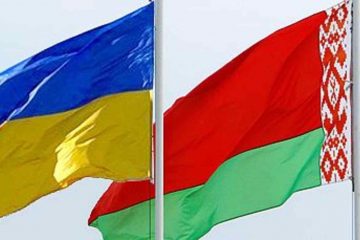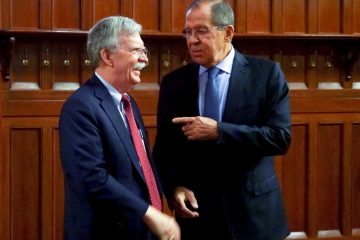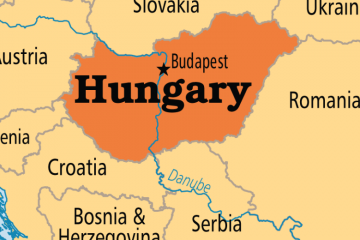The United States is now considering sending lethal aid to help the Ukrainian government fend off attacks from pro-Russian rebels in the eastern part of Ukraine.
This assistance would come in the form of so-called “defensive lethal aid,” which could include anti-tank, anti-air and anti-mortar systems.
The New York Times first reported the possible change in policy, saying NATO commander Gen. Phil Breedlove is in support of the new lethal assistance, and that Secretary of State John Kerry, Chairman of the Joint Chiefs Gen. Martin Dempsey and National Security Adviser Susan Rice are all open to considering the idea.
A U.S. official now tells CNN that military leadership supports defensive lethal aid being part of the discussion, but the administration is still trying to assess what reaction it could elicit from the Russian government, which the U.S. maintains is backing rebels in eastern Ukraine.
In an interview last week with CNN’s Fareed Zakaria, President Barack Obama alluded to concern in the international community that President Vladimir Putin is further isolating Russia, and bypassing opportunities to de-escalate the conflict.
“What is absolutely true is that if you have a leader who continually drives past the off ramps that we’ve provided, given the size of the Russian military, given the fact that Ukraine is not a NATO country and so as a consequence there are clear limits in terms of what we would do militarily, you know, Mr. Putin has not been stopped so far,” Obama said.
The U.S. official who spoke with CNN said the arms option came back to the forefront following Russian advances and weapons shipments into Ukraine in recent weeks.
But the U.S. military leadership feels any arms shipments to Ukraine must be part of a broader package of options.
Ben Rhodes, Obama’s deputy national security adviser, said on Monday that sending lethal aid to Ukraine isn’t a solution to the escalating situation there.
“We don’t think the answer to the crisis in Ukraine is simply to inject more weapons and get into that type of tit-for-tat with Russia,” Rhodes said on CNN’s “The Situation Room.”
“We think the answer is to apply pressure, try to get them to the table with the separatists so we can see a peaceful de-escalation,” Rhodes continued, adding that Obama and German Chancellor Angela Merkel would likely discuss Ukraine when they meet at the White House next week.
In his CNN interview, Obama hedged away from the possibility of lethal aid, calling instead for a continuation of economic sanctions.
“To those who would suggest that we need to do more, what I’ve said to them is that we can exact higher and higher costs, and that’s exactly what we’re doing and we can bring diplomatic pressure to bear,” Obama said, adding, “I don’t think that it would be wise for the United States or the world to see an actual military conflict between the United States and Russia.”
But in a press conference in India, the President seemed to leave the door open to some kinds of defensive lethal aid, saying, “I will look at all additional options that are available to us short of a military confrontation in trying to address this issue.”
On Monday, a group of former U.S. and NATO officials released a report in which they called on the Obama administration to provide further support to the Ukrainian government, warning that failure to stop incursions in Ukraine could embolden Russia.
“If the United States and NATO do not adequately support Ukraine, Moscow may well conclude that the kinds of tactics it has employed over the past year can be applied elsewhere,” the authors said, specifically highlighting concerns for regional NATO allies Estonia and Latvia.
The report specifically calls on the U.S. to provide light anti-armor missiles, as well as non-lethal equipment such as armored Humvees and UAVs.
“Some in the West are concerned that provision of military assistance, particularly of lethal arms, would cause Russia to escalate the crisis,” the report concedes. “We vehemently disagree.”
The authors cite actions the Russian government has already taken to escalate the crisis, including the seizure of Crimea, and their arming of rebel groups.
“Enhanced military assistance would increase Kyiv’s capability to deter further Russian escalation,” they add.
Among the report’s authors are Michele Flournoy, a former Undersecretary of Defense in the Obama administration, and Ivo Daalder, a former foreign policy adviser to the president and U.S. Permanent Representative to NATO.





Comments